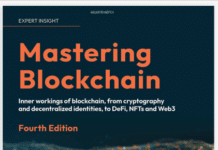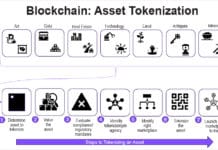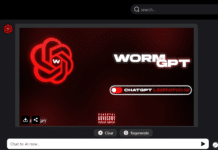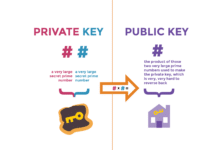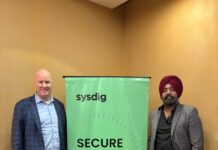Know how the open source community ended up making waves of change for the rest of society
With the memory of the internet-rebellion against U.S. internet control legislation SOPA and PIPA and the much-hyped role of social media in facilitating social movements like the Occupy movement, it is evident that the internet is becoming a major avenue through which citizens engage their government. The internet is no longer merely a place for people to vent feelings or pontificate on theoretical alternatives, users are exerting very real control on their governments, despite the risks involved for many of these internet citizens—the netizens. Nobody denies this trend, but I would argue that the open source community is overlooked in their role for laying the groundwork for the internet’s influence on the political sphere. It was the idea of open source that inspired members of its community to view the internet as this kind of platform and create projects to further that end. How did it get this way? What follows is a brief summary and proposal on how the open source community ended up making waves of change for the rest of society.
It’s Not About the Money: Open Source Economics
If there is one thing that the open source community is known for, it is its radical new vision of an economic model. The open source model is based on the concept of no single entity owning a specific enterprise or its associated products. This is a concept that emerges organically from the flexibility and ease of dissemination allowed by the internet. Although the community stalwartly supports attribution and licensing to prevent theft, the concept of ownership of ideas and innovations is much more fluid in order to capitalize on the innovation that collaboration brings.
Indeed, the name “open source” functions in ways that is similar to a brand, with a featured example of the power of the open source community being that of Firefox. The open source internet browser was first released in 2004, and was shortly-thereafter subjected to a huge marketing push by its creators. The Spread Firefox (SFX) initiative was launched, and the open source community rallied around the first major head-to-head matchup with proprietary internet browser Internet Explorer, the go-to browser of Microsoft. In a surprising turn of events, SFX met with resounding success, and Firefox continued to gain traffic until, in 2008, IE and Firefox having equal percentages of users. Firefox has since lost considerable ground to Google Chrome; however, the smashing success that Firefox saw against a competitor that was endorsed and partnered with Microsoft is, indeed, a great victory.
Furthermore, the open source community accomplished more than asserting its authority among “competitors,” it served to inspire these competitors with the power of the open source model. Microsoft followed suit by creating their own open source projects. Companies began to realize the necessity of making portions of core code for proprietary software open to the public. These moves not only improves functionality and further integration, but also helped to manage the industry reputation with an ever-more-cynical consumer base.
Furthermore, open source projects began to court more high-profile users as CMS platforms like Drupal and Joomla established themselves a high-quality, secure, versatile code; likewise, open source consulting firms began to rise as an answer to proprietary software firms. These developments demonstrate the power of the open source movement as it created a shift in how the software industry operated. It wouldn’t take long for observers to realize that if open source could influence an ever-more powerful segment of the global economy, that it could be a source for political change.
The Times, They Are A-Changin’
Although we see the strength of the idea of communal ownership of a product exemplified with open source projects, the concept is very naturally extended to that of government. Democratic ideals naturally dovetail with the philosophy of no single (or even group) ownership of any particular entity. Indeed with the recent success of the Common Man Party in India, we are seeing a renewed enthusiasm for the idea of collective responsibility and open access to information and decisions. The open source community is one of the pioneer communities to demonstrate how a truly open and democratic entity that engaged in mutual collaboration could still govern and develop ideas and efficiently without compromising on quality.
The creative collaborative process that forms the basis of all open source projects exemplified the sort of governance that many citizens found lacking in their own government. With this as inspiration, it should come as no surprise that citizens turned to the internet and made use of the many tools available. The use of social media in the protests of the Arab Spring are, perhaps, the most noted example in recent history of citizens capitalizing on the wealth of information offered by the internet. However, advocates for a free internet, a community that has many ties to the open source community, also took part in moves to help subvert the Iranian government’s attempted internet censorship during the 2009 election protests. Indeed, even less news-buzzing stories display the ties that bind between open source ideology and political development.
During the 2004 US presidential election, supporters of democratic candidate Howard Dean set up DeanSpace, using the open source CMS/F Drupal. DeanSpace, which later was revamped after the election to form CivicSpace, was a website template that allowed for local supporters and national supporters to better interact and coordinate their efforts. The fact that the supporters used open source software was also viewed as a political move in and of itself, with open source projects gaining even more notoriety as the corporate alternative and outlet for free expression. Indeed, the use of open source to identify with democratic ideals was invoked once again as the WhiteHouse.gov trumpeted its own transition to Drupal hosting shortly after President Obama’s election. By this point, the message was clear—open source products not only functionally, but ideologically articulated a move to transparency and responsibility in leadership.
Slowly but surely, the open source movement has gained momentum both economically and politically in asserting itself as a dominant advocate for greater individual freedom, while still supporting an ideology of collaboration and oversight. Beyond being an advocate, the movement also demonstrates itself as the go-to source for tools to make this freedom possible. What do you think is the role of open source in advocating individual freedom? Share in the comments.





